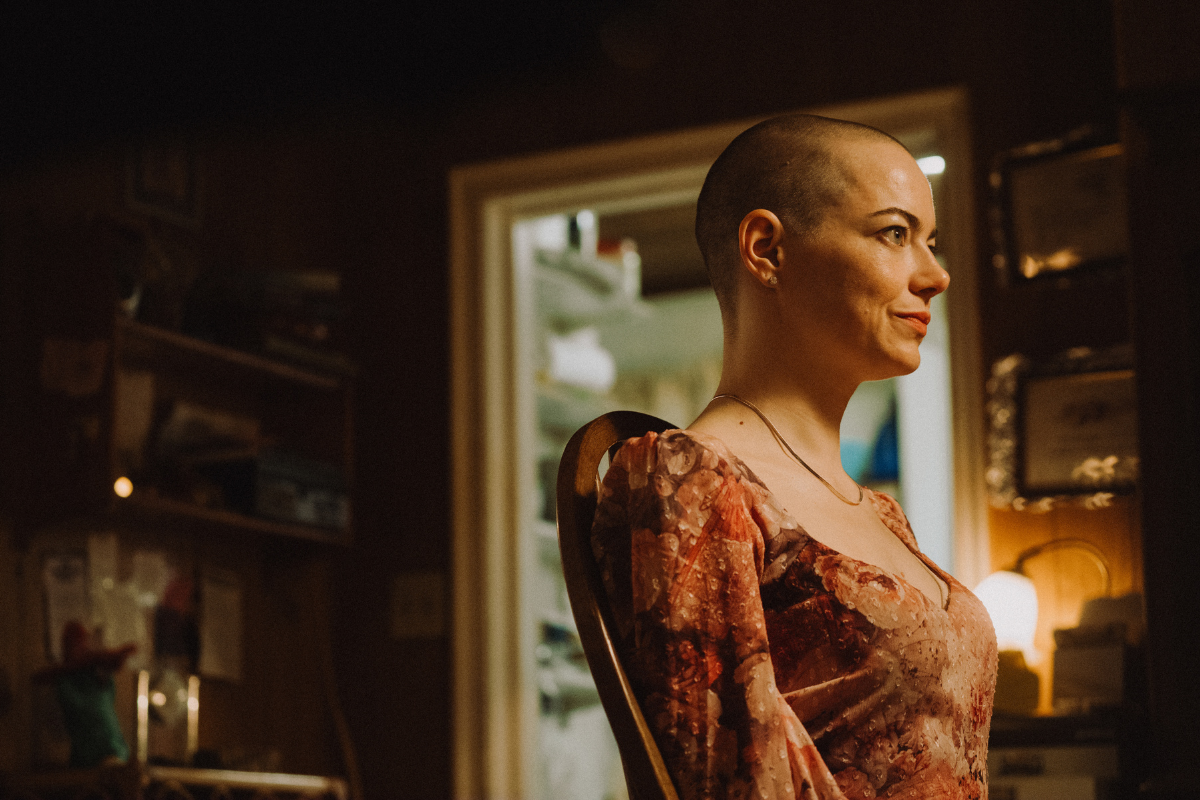WRITERS’ ROOM 101: Your First Gang Bang
TV writer Eric Haywood examines the group-writing process (unfortunately) known as the “gang bang.”
Eric Haywood has spent over a decade writing for network and premium cable television series including ABC’s Private Practice, Showtime’s Soul Food, NBC’s Hawaii, and the Fox drama Empire. Follow Eric on Twitter at @EricHaywood.
As I look back over the past few of these blog posts, I realize that I’ve been addressing topics of a more general nature instead of putting the day-to-day process of working in a TV writers’ room under the microscope. Which means it’s probably time that I got back to basics. So today we’re going to examine a common practice that, as a TV writer, you’re pretty much guaranteed to encounter over the course of your career: the gang bang.
Don’t worry... this post isn’t as NSFW as its title might suggest. You won’t have to read it under your blanket with a flashlight (unless that’s your thing, in which case…knock yourself out).
However, I promise you that I didn’t just choose this title as mere click-bait to draw your attention; it really is about gang banging.
The thing is, every TV writer has participated in one at some time or another. And so will you. Thus my intention here is to give you a heads-up (no pun intended) so you’ll know what to expect once you’re inevitably called upon to join in.
In TV writer parlance, “gang bang” is a commonly-used (and admittedly inelegant) phrase to describe the process of a group of writers – sometimes the entire staff – collaborating on a single script simultaneously. The idea is to literally work as a “gang” (as opposed to you writing an episode all by yourself) to “bang out” a script as quickly as possible.
Gang banging a script can reduce the time required to deliver a draft to the showrunner from roughly a week down to as little as 24 hours or less. Once an episode is broken, scenes are divided among the staff, and you might find yourself assigned to write two or three scenes of that episode – the exact number of scenes will depend on the size of the staff and how many writers are available at the time (some might already be in the middle of writing another script and therefore not able to participate). With everyone contributing a handful of scenes at the same time, the finished pages are then combined into a single document and delivered to the showrunner (sometimes the co-executive producer writer will do a pass first). The showrunner then does her own pass, making whatever changes she wants to the script, and puts out a production draft. The script is now ready to deliver to the cast and crew to begin prep.
In most cases, you’ll be called upon to help gang bang another writer’s script, but there will be other times when it’s your episode that gets written this way. Whatever the case, the pre-designated writer (meaning the writer to whom the episode was originally assigned) gets the screen credit. And the check. And the residuals. The other participants get...well, the thanks of a grateful nation and the satisfaction of a job well done.
So why does gang banging happen in the first place? Because in television production, time is of the essence. Scripts absolutely, positively, must be delivered on time, or disaster strikes because no one can do anything without a script. Sometimes the various department heads are able to perform some of their basic prep duties working from just an outline, and while that’s certainly better than nothing, it’s far from the preferred way to work. When scripts aren’t delivered on time, everything screeches to a halt and the entire production risks turning into a ten-car pile-up because the cast and crew can do nothing but sit on their hands. And the network freaks out. And the studio is forced to spend lots and lots of money it hadn't planned on...and studios hate that.
So how does a show find itself in such a position? There are any number of reasons. Sometimes the writing process simply falls behind schedule. Sometimes, even when scripts are delivered on time, a major problem arises and the whole script must be thrown out and rewritten from scratch with no time to spare. Sometimes the network or studio reads the script and flat-out rejects it and demands a rewrite. No matter what the reason, the production schedule is carved in stone and can’t be changed without causing the aforementioned major headaches, so again: scripts must be delivered on time, come hell or high water. Period.
Which brings us back to the gang bang.
Before I go any further, a quick word or two about that phrase is probably in order. Yes, it’s stupid. It’s childish. Sometimes even the most experienced writers snicker when they say it. But for better or worse, the term has stuck. It’s simply what the process is called, so you’ll probably never work on a show where it’s not used. If “gang bang” makes you uncomfortable, you can try referring to it as “group writing” or “collaboration” or whatever substitute strikes your fancy, but the reality is, everyone’s gonna know what you’re talking about. You’re talking a gang bang. So resist using it if you want, but you’ll probably find that it’s more trouble than it’s worth.
Anyway, whether you’re already a staff writer or still trying to land your first job, rest assured that you’ll end up hammering out a script or two in this fashion from time to time. In fact, there are some TV shows that write entire seasons this way. If that happens to be the showrunner’s preferred way to work, that’s how you’ll be expected to do it. But in my experience, it’s much more common that writers are sent off to write their scripts individually, and the gang bang is regarded as the exception rather than the rule.
But no matter which type of environment you find yourself working in, your first gang bang probably won’t be your last. Hopefully, such instances will be relatively rare, but every once in a while, you’ll find yourself tasked with rolling up your sleeves and writing a handful of scenes under the pressure of an immediate deadline. It’s in those cases that simply being a good writer isn’t enough; you’ll have to be both good and fast. Are you ready for that?
Get help creating a series bible with Tom Benedek's webinar
Season Bible: Building Your TV Series Pitch
TV Writers’ Room 101 by Eric Haywood: If you’ve ever wondered what goes on inside a television drama writers’ room, look no further. “Inside the Writers’ Room” will pull back the curtain and show you how “the room” functions, how ideas get pitched and stories get broken, how the writer functions on set when an episode he or she has written is being filmed, and more. This column is geared towards writers who are either actively seeking to break into television writing or have already landed their first job on staff and could use a little help navigating the unspoken do’s and don’ts. Twitter: @EricHaywood







